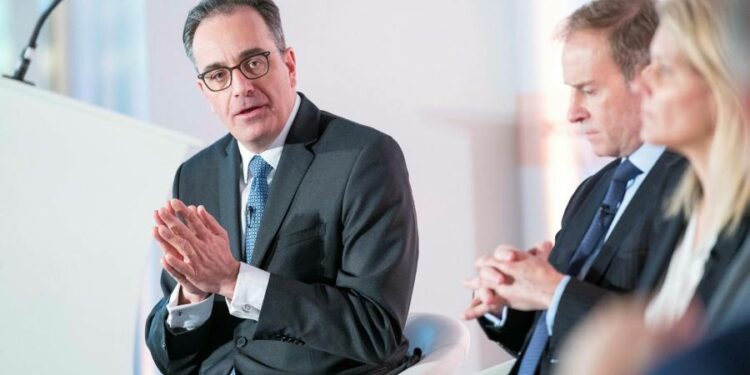The crisis in global energy markets will force some smaller commodity traders out of business and unleash a wave of consolidation in the sector, a senior executive at one of the world’s largest trading houses has warned.
Christophe Salmon, Trafigura’s chief financial officer, said a spike in the capital needed to keep commodities flowing around the world since Russia invaded Ukraine would squeeze smaller trading houses out of the market.
“When we go through these crises — and let’s not forget we’re getting out of two-and-a-half years of Covid situation — there will be another set of consolidation of the commodity trading sector,” Salmon told the FT Commodities Global Summit in Lausanne on Wednesday.
The comments come amid broader concerns about a liquidity crisis sweeping commodity financing. Europe’s largest traders have pleaded with banks and governments to offer “emergency” assistance to prevent a cash crunch as large swings in commodity prices push up the cost of trading.
The global commodity trading sector is dominated by large groups such as Trafigura, Vitol and Gunvor but Salmon said many smaller traders were facing a multitude of problems from rising capital requirements to a lack of access to credit.
“The barriers to entry to our sector as supply chain managers are increasing,” he said.
Traders at the FT conference have voiced concerns that difficult conditions such as banks demanding hefty initial margins — cash for hedging future contracts — had contributed to a breakdown in the proper functioning of commodity markets, particularly gas and nickel.
Fears over hydrocarbon supplies from Russia, the world’s second-largest gas producer and third-biggest in oil, have rattled markets. Europe has yet to impose sanctions on Russian energy exports but banks, shipping companies, insurers and refiners are “self-sanctioning” and avoiding touching oil from the nation.
On Tuesday, the heads of the world’s largest commodity trading groups warned the conference of impending diesel shortages that would hit Europe hardest.
Salmon said the ruptures to commodity financing would feed through to consumers.
“We are already in a vicious cycle on the futures market. I want to stress the impact that it will have on the physical market,” he said. “We are more and more engaged with governments in order to inform the governments of the likelihood of market disruptions, meaning stock-outs of certain products in certain regions.”
European gas prices jumped to more than €300 per megawatt hour this month before easing below €100, while Brent crude, the international oil benchmark, has risen 20 per cent since the invasion of Ukraine to $118 per barrel.
Traders expect to have higher levels of working capital tied up with more barrels on the sea since Russian oil must travel further to Asian customers and replacement supplies for Europe must also spend more time in transit.
Salmon’s observation over the viability of smaller traders comes amid uncertainty over the future of Gazprom’s UK trading arm, which Boris Johnson’s government is on standby to put into “special administration”, a de facto nationalisation. The unit is vital to the cheap supply of energy for many British industrial businesses.











